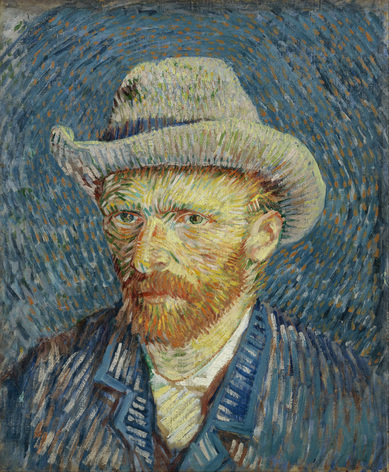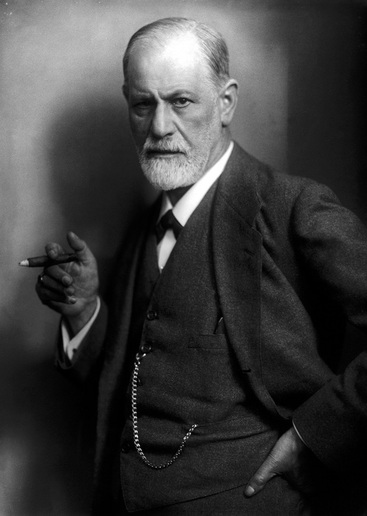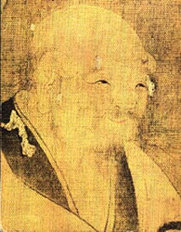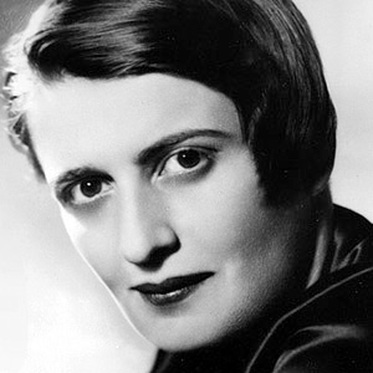 It is believed that Vincent Van Gogh had bipolar disorder.
It is believed that Vincent Van Gogh had bipolar disorder.
A Comparative Analysis of the Post Personal Project
By Patrick Howe
Bipolar Disorder, Self-Worth and Post Personalism
Clinical bipolar disorder, or manic depression, is a mental illness. Its symptoms include extreme high and low mood swings. Feelings of ecstatic self-worth quickly dissolve into self-loathing. It is a disease that requires specialized medical attention.
Most people have high and low mood swings to a lesser degree but are not considered mentally ill. Some humans experience a predominantly high sense of self-esteem while others may experience a predominantly low sense of self-esteem.
For so-called normal people, swings in feelings of self-worth are not caused by a disease. When examined closely we see they are caused by our mentally held opinions. It is our opinions about our self worth that make us feel lesser or greater than others.
Theoretically then, if we were to detach from our opinions of being greater or lesser, then we would have no high or low self-worth. We would have no healthy or unhealthy self-esteem. We would have no strong or weak ego. We would simply “be”. And that would be perfect. If we held no opinion about ourselves and others, then however we and others are would be fine.
The post personal project does not take opinions about itself and others too seriously. This flexibility and openness frees us to enjoy being. When we are simply being, without attachment to our opinions, there is no need for high or low self-esteem. Your worth is already inherent within you. You are not greater or lesser. You are perfect exactly as you are.
With this in mind, a post personal artists might ask: How would I create an artwork series that communicates the perfection that is hidden within apparent imperfection.
By Patrick Howe
Bipolar Disorder, Self-Worth and Post Personalism
Clinical bipolar disorder, or manic depression, is a mental illness. Its symptoms include extreme high and low mood swings. Feelings of ecstatic self-worth quickly dissolve into self-loathing. It is a disease that requires specialized medical attention.
Most people have high and low mood swings to a lesser degree but are not considered mentally ill. Some humans experience a predominantly high sense of self-esteem while others may experience a predominantly low sense of self-esteem.
For so-called normal people, swings in feelings of self-worth are not caused by a disease. When examined closely we see they are caused by our mentally held opinions. It is our opinions about our self worth that make us feel lesser or greater than others.
Theoretically then, if we were to detach from our opinions of being greater or lesser, then we would have no high or low self-worth. We would have no healthy or unhealthy self-esteem. We would have no strong or weak ego. We would simply “be”. And that would be perfect. If we held no opinion about ourselves and others, then however we and others are would be fine.
The post personal project does not take opinions about itself and others too seriously. This flexibility and openness frees us to enjoy being. When we are simply being, without attachment to our opinions, there is no need for high or low self-esteem. Your worth is already inherent within you. You are not greater or lesser. You are perfect exactly as you are.
With this in mind, a post personal artists might ask: How would I create an artwork series that communicates the perfection that is hidden within apparent imperfection.
 Sigmund Freud (1856-1939)
Sigmund Freud (1856-1939)
Freud, the Ego and Post Personalism
Today the word ego has become synonymous with self-worth, self-importance and self-esteem. It is believed that if you have a sense of high self-worth, then you have a strong ego. If you have a low sense of self-worth then you have a weak ego.
However, from a Freudian point of view, that particular use of the word ego is incorrect. According to Sigmund Freud (1856-1939) the human mind is divided into three compartments. The Id, the Ego, and the Super Ego. Freud believed that the Id is the reptilian part of the human brain, which instinctively desires to procreate and survive for itself regardless of others. The Super Ego, on the other hand, is formed by familial, societal and cultural conditioning that creates social order. The Ego, according to Freud, operates just below the conscious level of awareness. It’s job is to moderate, or negotiate, the opposing forces of the Id and the Super Ego in order for a human being to function as a normal, law-abiding member of society.
Freud did not intended for the word ego to be associated with a person’s degree of self-worth. The self-worth definition of ego sprang out of popular psychology. A boastful, self-absorbed person is thought to have a big ego, and a meek person is though to have a small, or weak ego.
Post Personalism does not define other people or their behavior by the compartments of their psychological makeup. It focuses instead on the beingness of oneself and others. To a Post Personalists, the ego, great or small is not a bad thing, it's an obsolete thing.
 Lao Tzu, ancient Chinese philosopher and author of the Tao Te Ching
Lao Tzu, ancient Chinese philosopher and author of the Tao Te Ching
Eastern Philosophy and Post Personalism
In Eastern philosophical terms the ego is the unobserved mind. The unobserved mind is when thoughts and feelings happen without the person being aware of them. Which in turn motivates the mental, emotional and behavioral states of the person. It is the nature of the unobserved mind to form rigid concepts. It also observes others and the environment as separate from itself. On the other hand, the non-egoic person is more aware of what they think and feel and recognizes their essential oneness with others and the environment. Likewise, Post Personalist artists are interested in transcending self-centricity and in exploring art forms through which to communicate that.
 Ayn Rand (1905-1982)
Ayn Rand (1905-1982)
Rational Self Interest (Egoism) and Post Personalism
Rational Self Interest was promoted by Russian-born American novelist and philosopher Ayn Rand (1905-1982). The theory of Rational Self Interest states that if a person takes action on what is believed to be right and true for oneself alone, regardless of others, they will have the greatest possibility of personal material success and happiness.
It is possible that Rational Self Interest may have served a purpose in simpler times when societies needed to be built by the brute force of egoic kings, emperors and uncompassionate capitalists, But times have changed. Brute force is no longer needed. The next step in human evolution require the tools and strategies of compassion.
Furthermore, the problem with Rational Self Interest is that it has never proven to produce lasting success and happiness for anyone as it claims. It is apparently called "Rational" Self Interest in order to make self-centeredness appear rational, reasonable, practical and good for everyone. But in reality, when examined closely it is merely an intellectual attempt to justify the existence of the ego, which sees others and the environment as separate from itself and as objects; merely resources for the consumption of the ego’s self interest. Post Personalism is the opposite. It's so-called self interest is oneness, which is true self interest. And the true self interest of one is always in the true self interests of others.
 Violence breaks out at a Donald Trump presidential rally in 2016
Violence breaks out at a Donald Trump presidential rally in 2016
Post Personalism is not Collectivism
Collectivism is the notions that a group of human beings is more capable of producing truer or more rational solutions than a single individual. The belief is that the shear numbers of people who think the same makes something right. However, whatever a group of humans do is always a reflection of their collective consciousness. A group of egoic humans would not produce truer or enlightened ideas. It would produce separation and negativity because that is the nature of the ego. Nationalism, or tribalism, are forms of collective thinking, or collective ego that have historically produced violence.
On the other hand, the post personal project is about each individual discovering the truth for themselves within. There is no group thinking—no 'group soup'. There is no doctrine to believe in. The common thread shared by artists of Post Personalism is their individual passion and experience of egoless oneness, and out of that may arise truly inspired solutions for the betterment of all.
Post Personalism is not Collectivism
Collectivism is the notions that a group of human beings is more capable of producing truer or more rational solutions than a single individual. The belief is that the shear numbers of people who think the same makes something right. However, whatever a group of humans do is always a reflection of their collective consciousness. A group of egoic humans would not produce truer or enlightened ideas. It would produce separation and negativity because that is the nature of the ego. Nationalism, or tribalism, are forms of collective thinking, or collective ego that have historically produced violence.
On the other hand, the post personal project is about each individual discovering the truth for themselves within. There is no group thinking—no 'group soup'. There is no doctrine to believe in. The common thread shared by artists of Post Personalism is their individual passion and experience of egoless oneness, and out of that may arise truly inspired solutions for the betterment of all.

